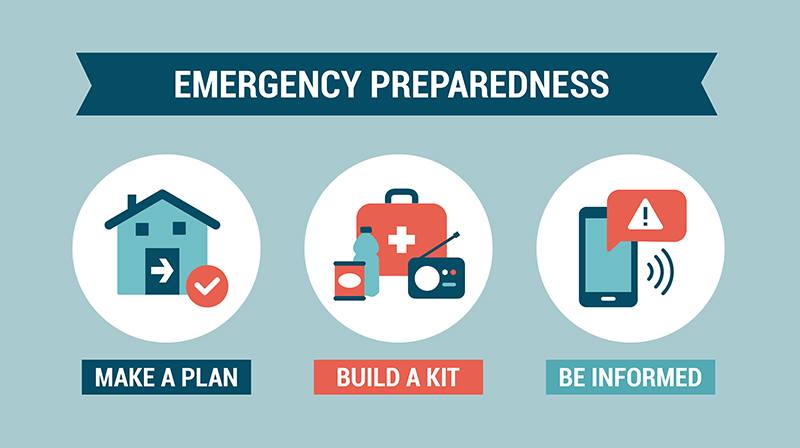NATIONAL PREPAREDNESS MONTH
Week 3 | Prepare for Disasters
September 15, 2020
Emergencies and disasters can strike with little to no warning. Limit the impact that disasters can have on you and your family by being prepared:
- Make sure that your family has an emergency plan and practices it often. Your plan should include important emergency contact information, escape routes, and safe places in your home in case you need to shelter in place. Have a designated meeting place if family members become separated
- Know the risk of disasters in your area, how to get emergency alerts, and where to go if you and your family need to evacuate your home. Act quickly if you receive a local warning or alert
- Assemble and maintain a disaster supply kit that includes basic items your household may need for a few days
- Check your insurance coverage to see what’s covered in the event of a disaster
- Learn how to make your home stronger in the face of storms and other common hazards
For a list of potential disasters and emergencies and what you can do to prepare for different situations — including what to do before, during, and after a disaster — visit Ready.gov: https://www.ready.gov/be-informed
National Preparedness Month is recognized each September to promote family and community disaster planning now and throughout the year. FEMA’s “Ready” Campaign is a National public service initiative designed to educate and empower the American people to prepare for, respond to, and mitigate emergencies, including natural and man-made disasters.
Credit to: FEMA and Ready
